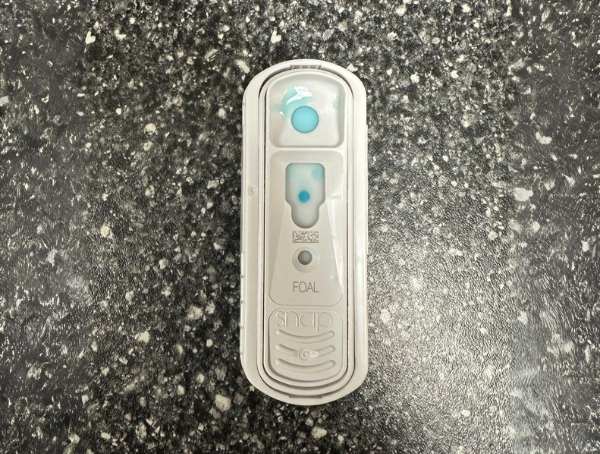IgG
Vaccinating pregnant mares 30 days from their estimated foaling date provides the antibodies necessary to produce colostrum with a high concentration of IgG (immunoglobulin G). Unlike humans, horses do not transfer immunoglobulin to the fetus during pregnancy, so foals are born essentially without an immune system and obtain protective immunity through the absorption of ingested colostrum antibodies.
Foals with IgG levels of <200 mg/dl are considered to have a failure of passive transfer of immunoglobulins (antibodies). This problem is usually due to poor quality of colostrum of the mare or premature lactation before the foal is born (dripping or running of milk).
Intravenous administration of equine plasma is used to increase the level of antibodies, because these foals are at a much greater risk of developing infections due to the exposer to pathogens.
Plasma can also be used as a preventative treatment against Rhodococcus equi infection.
| < 200 mg/dl | Complete failure of passive transfer |
| < 400 mg/dl | Failure of passive transfer |
| 400-800 mg/dl | Partial failure of passive transfer |
| > 800 mg/dl | Adequate passive transfer of colostral antibodies |
IgG levels can be tested at the time of a newborn foal examination within the first 24 hours following birth. Contact your veterinarian (or SVEC) to schedule your newborn foal’s examination.





